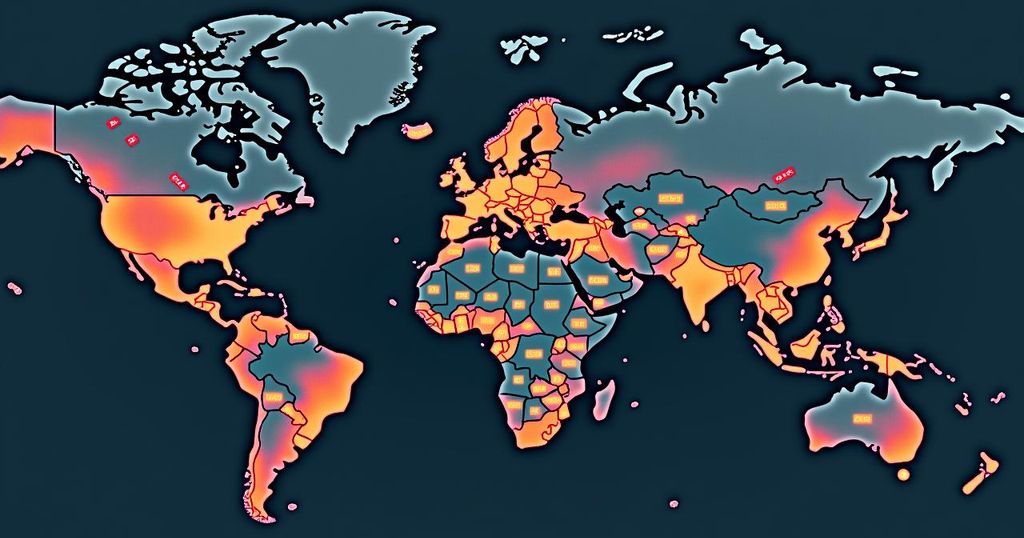International Spread of Mpox: Current Situation and Preventive Measures

Mpox, reminiscent of past epidemics, is experiencing a resurgence with the identification of the Clade 1 variant, which poses severe risks. Countries such as Sweden, Thailand, Pakistan, and the Philippines have reported cases outside Africa, where 14 nations—including the DRC, where the outbreak is most severe—are witnessing rampant cases. The WHO has deemed mpox a public health emergency as monitoring and preventive measures are urgently needed.
As reported, a new and potentially more lethal strain of the mpox virus is spreading internationally from its African origins. Notably, four nations—Sweden, Thailand, the Philippines, and Pakistan—have documented instances of mpox cases outside of Africa. In total, fourteen African nations have also reported cases. The World Health Organization (WHO) classified the mpox outbreak as a “public health emergency of international concern” in light of the newly identified strain, Clade 1, which is known to spread through skin-to-skin contact. The mpox virus has been a topic of concern since its first reflections in 2022, tracing back its origins primarily to the Democratic Republic of the Congo (DRC). The DRC has witnessed an unprecedented surge with over 13,791 cases and 450 associated deaths reported as of August 21, 2023. The outbreak has predominantly affected children under the age of 15, with reports indicating that they make up 60 percent of the caseload. The newly identified Clade 1b variant is also emerging rapidly, seen in neighboring countries such as Kenya, Rwanda, and Uganda. Reports of cases from the Africa Centres for Disease Control and Prevention affirm that the DRC continues to bear the brunt of the outbreak, housing 96 percent of the continent’s mpox cases. In Asia, Thailand confirmed its first case of the Clade 1b variant in a European traveler, while the Philippines reported a case linked to the milder Clade 2 variant. Meanwhile, Pakistan detected its first patient diagnosed with the Clade 2 variant. In Europe, Sweden also reported an mpox case, classified under the Clade 1 variant. The infection was confirmed on August 15. As for the Americas, no new cases of Clade 1 have been recorded, though countries remain advised to be alert for potential occurrences. The situation surrounding mpox remains dynamic as public health authorities globally respond to manage and mitigate the outbreak, emphasizing the need for intensive monitoring and rapid intervention.
The emergence of mpox, previously known primarily within African communities, has taken a significant international turn with the identification of a new and more virulent strain. The Clade 1 variant, believed to have a higher fatality rate compared to its earlier strains, has prompted urgent responses from health organizations, particularly the WHO, which has characterized the current situation as an international health emergency. Many countries are now on heightened alert as the virus crosses borders, presenting risks to public health globally. The DRC remains at the center of the epidemic due to its vast number of recorded cases, necessitating a deeper understanding of transmission patterns and preventive measures as outbreaks potentially spread to other regions.
In conclusion, the mpox virus is escalating in severity and geographic reach, with new strains posing substantial risks. Nations are urged to enhance surveillance, testing, and response strategies amid the ongoing global health emergency. The current outbreak, particularly its impact in the DRC, highlights the necessity for continued public health vigilance and collaborative international efforts to control the spread of the virus and protect vulnerable populations.
Original Source: www.aljazeera.com





